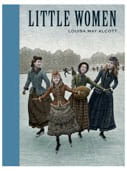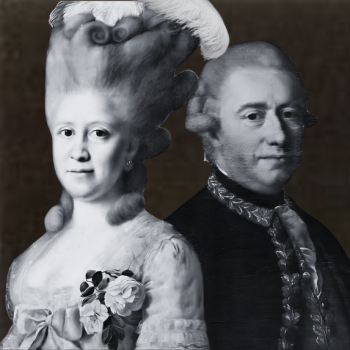By Beth Davies-Stofka
 Christmas is entwined with tradition and nostalgia, at least in my mind. I indulge in a variety of Christmas traditions each year, most of which involve food (okay, chocolate). But the tradition I enjoy most is my annual re-read of my favorite Christmas stories.
Christmas is entwined with tradition and nostalgia, at least in my mind. I indulge in a variety of Christmas traditions each year, most of which involve food (okay, chocolate). But the tradition I enjoy most is my annual re-read of my favorite Christmas stories.
When I was eight years old, I received my first copy of Louisa May Alcott's Little Women for Christmas. (Well, it was an early gift because I found it while rooting around in the back of my mother's closet -- but I swear I wasn't looking for hidden presents!) I also read Maud Hart Lovelace's Betsy-Tacy series for the first time that year. And now, nearly 40 years later, I still turn to these beloved books each Christmas.
Mind you, I no longer have the original copies. That first precious copy of Little Women, with the ultra-cool cover just oozing 60s design sensibilities, was lost during my peripatetic grad school years. And the Betsy-Tacy books never did belong to me. Those came from the library. Over the years, I've collected and then handed on any number of iterations of these beloved books. They're not only well worth rereading, they're wonderful for sharing.
This year, I treated myself to brand-new copies of both. The final six books of the Betsy-Tacy series were reissued this past fall by HarperCollins in three gorgeous paperback editions with Vera Neville's glamorous, fashion-conscious illustrations gracing the covers -- in color, no less! I considered various volumes of Little Women before settling on the edition published in the Barnes and Noble Classics series. The introduction and notes by Camille Cauti could certainly be improved, but the price -- $6.95 -- could not be beat.
It's easy to see why these books and their heroines, Jo March of Little Women and Betsy Ray of Betsy-Tacy, are beloved by generation after generation of young female readers. While Jo's story begins during the American Civil War, and Betsy's begins some thirty years later at the crest of the Gilded Age, they are both thoroughly modern girls. We see ourselves in them. Despite their differences, they are independent, career-minded young women, their thoughts oriented toward the future. One is a reformer, the other a progressive, and a rose by any other name smells just as sweet. Jo and Betsy work hard to educate themselves and develop their talents. They want to be writers.
As they come of age in the hands of Alcott and Lovelace, Jo and Betsy are pried open by life's experiences, both kind and cruel. Jo suffers more than Betsy, to be sure, because Jo is marked at a young age by poverty such as Betsy never knows. But this doesn't divide them from each other, or from us. Their vulnerabilities, disappointments, successes, and persistence in the face of their own flaws draw us directly into their stories. They resonate. We've all been there. Each girl feels young love keenly. Each suffers a broken heart, but discovers that the pain of breaking a friend's heart is much worse. Both of them do things that have us wringing our hands over their folly -- and our own!
And both of them struggle to master themselves, to overcome their "bosom enemies." They become talented and successful writers and strong and giving women happily embraced in loving marriages and families. They mature and succeed in such appealing directions largely by taming and disciplining themselves through self-sacrifice. This is an extraordinary value to teach young girls, and what better way to learn it than through engrossing stories of winning heroines?
For both novelists, Christmas provides a wonderful occasion to explore the challenges and rewards of self-sacrifice. Consider the Christmas story in the eighth book of the Betsy-Tacy series. Betsy and Joe tells the tale of Betsy's final year of high school. As Christmas approaches, Betsy is suffering a broken heart. At the tender age of seventeen, she sees true love slipping away, and Christmas Eve finds her in her bedroom, crying. Her older sister Julia is away in Europe studying Grand Opera, and for perhaps the first time, with no Julia to turn to, a mature sense of responsibility for the happiness of her family dawns on Betsy.
Anyone could be forgiven for crying over a broken heart at seventeen, since there is no doubt in my mind that few of us escaped that particular fate. But Betsy, showing the new maturity of the sweet young woman she has become, thinks beyond her own heartache, and considers the feelings of her family. Listen to Lovelace's simple prose, filled with the warmth of understanding:





